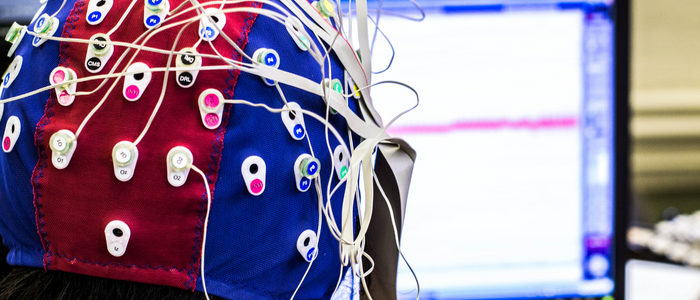Top 3 Bad Habits that can Ruin your Memory and a Dementia and Alzheimer’s test to help

The brain is the most important organ of your body, and it is important to protect it. The health of your brain directly impacts its cognitive function and memory as well.
One of the biggest threats to the health of your brain and its cognitive function is the modern lifestyle.
According to most experts, technology and the contemporary lifestyle are rewiring our neural pathways, making our brains slower and less capable of innovative and critical thinking.
It is a shame that we don’t put a lot of thought into protecting our brains. However, if you want to lead a healthy and productive life, your brain is perhaps the most important part of the body you need to nourish and protect.
The modern lifestyle and being constantly distracted by technology can affect our mental health, cognitive function, and memory.
Many habits are actively hampering our brains and ruining the neural pathways responsible for memory and critical thinking.
In this article, we will cover some bad habits to avoid to protect your memory and a dementia test that can help to figure out if you have a memory problem.
The following is a list of the worst habits that can potentially ruin your mental health and affect your memory.
Discover Your Path to a Longer, Healthier Life!
Take our free quiz to see how your lifestyle measures up to the world's longest-living communities and receive expert tips for a healthier, longer life.
Take the Quiz1. Inactivity of the brain
We all know what a sedentary lifestyle can do to your heart, right? But did you know that a lack of physical activity is slowly taking its toll on your mental health as well?
Physical activity is as important to your brain and its health as it is to the rest of your body. Our modern lifestyles have made us busy, glued to our chairs, and we have almost given up on being physically active.
However, it can result in some serious effects on both your body and mind.
If you lead a sedentary lifestyle, the shape of some neurons in your brain can change their shape and cause a gradual decline in the cognitive function of the brain and memory.
According to a study published in 2014, a sedentary lifestyle can cause a decline in mental health by restructuring the brain’s neurons.
Exercising regularly can improve the secretion of neuroprotective compounds in the brain that can boost your memory and cognitive function and make you feel happy.
It has been shown that people who exercise regularly have less tendency to be depressed as well. So, get out there and get some exercise. Your brain will thank you.
2. Stop multitasking

Multitasking has become a hallmark of the modern lifestyle. People want to do many things in a short period and do more than one thing at a time.
How many times have you walked down the street with your head buried in the screen of your smartphone?
We have all been guilty of trying to squeeze a lot in a small amount of time. But did you know that multitasking is not good for your brain?
If you think that multitasking increases your productivity, think again. A ton of research in this field has confirmed that multitasking is not only less productive but can also put your brain under undue stress, which is not good for its long-term health.
We have not evolved to multitask, and our brain is not wired to tackle more than one task at a time. When you think that you are multitasking, all you are doing is rapidly switching from one task to another, and every time you do so, you pay the price.
When you multitask, you increase the brain’s stress level, elevating the stress hormone cortisol and adrenaline.
These hormones can overstimulate your brain, making it cause a mental fog to set up, and you see the activity progressively slow down. You also start seeing lapses in your memory if you tend to multitask a lot.
Also, multitasking is not a great way of giving your best to the task at hand. Rather than multitasking, try to stay in the moment and practice mindfulness, which can help you improve your memory and cognitive function.
3. Stop information and sensory overload
One of the worst things you can do for your cognitive health and memory is overloading your brain with sensory stimuli and information.
Just look at how many emails, notifications, and alerts you get on your phone in a day, and you will start to see the point here.
It takes a huge chunk of your functional brain capacity to process all this information and contextualize it.
If you can’t manage the information load, you tend to be stressed, and a vicious cycle starts.
According to a study, information overload can knock off as many as 10 points of your IQ. The study found that people disturbed by an email or notification while concentrating on a particular task lost focus, and their performance declined significantly.
It is important not to overload and overstimulate your brain with information that is unnecessary and redundant.
It would help if you were also mindful of how you consume media to protect your brain from overstimulation.
If you make a conscious effort in planning your day with these things in mind, you will not only be more productive, but you can improve your memory and cognitive function as well.
Practicing yoga and meditation in the morning or even in the middle of your workday can significantly improve your brain function.
Just close your eyes for 5 minutes when you feel overwhelmed with information to give your brain the break that it deserves and needs.
Quantitative-based cognitive testing

Quantitative-based cognitive testing, such as EEG-based assessments, is one of several diagnostic tests that can help to detect memory loss years before it becomes a problem.
Health professionals like geriatricians and neurologists can provide such tests.
This is especially important for conditions like Alzheimer’s disease, where early diagnosis can make a big difference in the efficacy of treatments.
EEG-based assessments are non-invasive and relatively inexpensive, making them a valuable tool for diagnosing memory problems in their earliest stages.
Results can show if there is a slowing of brain waves, how quickly your brain processes information, and if there are any mood-related issues contributing to memory loss. These findings, together with other neurological tests can help to determine if you have dementia.
In addition, EEG-based assessments offer a quantitative measure of cognitive function, which can be very helpful in tracking the progression of memory loss over time.
Ultimately, quantitative-based cognitive testing can play a key role in the early detection of memory problems, providing vital information for both patients and caregivers.
How Prime MD Plus can help

Prime MD Plus is a medical practice with a board-certified geriatrician who can help diagnose and treat memory loss.
The first step in diagnosing memory loss is to take a medical history and perform a physical exam.
The medical history should include questions about family medical history, current medical conditions, medications, and any changes in mood or behavior.
The physical exam will help rule out other causes of memory loss, such as thyroid problems or vitamin deficiencies.
Blood tests may also be ordered to check for kidney or liver problems, infections, or diabetes.
Brain imaging with computed tomography (CT scan) or magnetic resonance imaging (MRI scan) technology may be used for a more accurate diagnosis to evaluate brain cells in the temporal lobes where the memory centers are located.
Once other causes of memory loss have been ruled out, the doctor will combine cognitive assessment results with other test results to diagnose dementia.
The cognitive assessment may include one or more mental status tests, including tests of memory, attention, visuospatial skills, language, and executive function.
Alzheimer’s disease-diagnosed patients can then discuss all available treatment options including support options with social workers or the Alzheimer’s association.
Lifespan Comparison Tool
Compare the life expectancy by the U.S. State
In the Dallas-Fort Worth Metroplex?
Discover how our cutting-edge medical practice enhances longevity. Detect dementia years in advance, assess your vascular age, and proactively monitor crucial indicators to prevent major issues.
Learn MoreConclusion
It is important to alter your lifestyle so that it is helping your brain rather than hurting it. The modern lifestyle already puts a lot of pressure on your brain.
Avoiding certain things can go a long way in protecting your brain from additional damage that can hamper your memory and cognitive function.
It can be difficult to make a sudden and radical change in your lifestyle.
Still, you can bring about a positive difference in your lifestyle with practice and proper planning that can help boost your cognitive function.
A quantitative EEG cognitive test can help to make a diagnosis. This may be used in combination with laboratory tests and brain scans.
Consult a specialized doctor for any kind of memory issues with Prime MD Plus, where you can connect with a board-certified geriatrician in the Dallas-Fort Worth area to help diagnose and manage any memory problems you may have including Alzheimer’s and other dementias.
Check out primemdplus.com for more information.

 972-393-1699
972-393-1699





